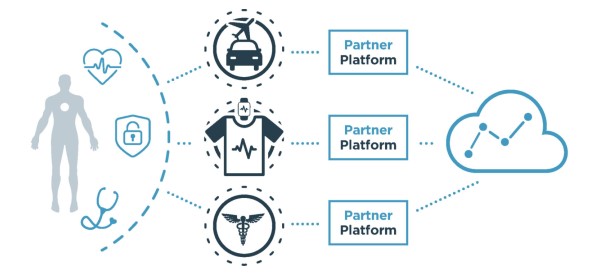
Most articles about wearable tech focus on the health-related uses of biometric data. Measurements of body functions such as heart rate, temperature, and breathing rate can help identify disease and other conditions. But there’s another big problem facing healthcare in the digital age: who is the patient that is being treated?
This relatively simple question gets very complex in a hurry. Social Security numbers in the U.S. are an imperfect identifier; according to some sources, 40 million Social Security numbers are associated with multiple individuals. And as many as 20 million people may have multiple Social Security numbers. Those are not levels of accuracy that you want to rely on for life and death decisions.
One of the safest ways to identify an individual is to use unique biometric data, such as a fingerprint or an iris scan. Even these could be disrupted through injury, however. Perhaps the most dependable identifier is your own heartbeat. B-Secur is a company based in Ireland that has developed a way to identify individuals based just on their ECG data.
The company’s HeartKey technology has many potential applications. The heartbeat data can be used for corporate security applications, eliminating ID cards that can be lost or stolen. The unique identifier could also make an excellent patient ID as well.
The technology can also be used to monitor a subject’s condition. For example, by incorporated ECG electrodes in the steering wheel of a car, the driver can be identified uniquely while also detecting drowsiness or other conditions that could impair the ability to drive safely.
A dependable patient ID system likely will have to rely on multiple biometric “keys” to provide sufficient redundancy while remaining convenient to use. In this age of computerized health records that can be shared in an instant, we need to be sure that those records belong to the patient who is present for treatment.

